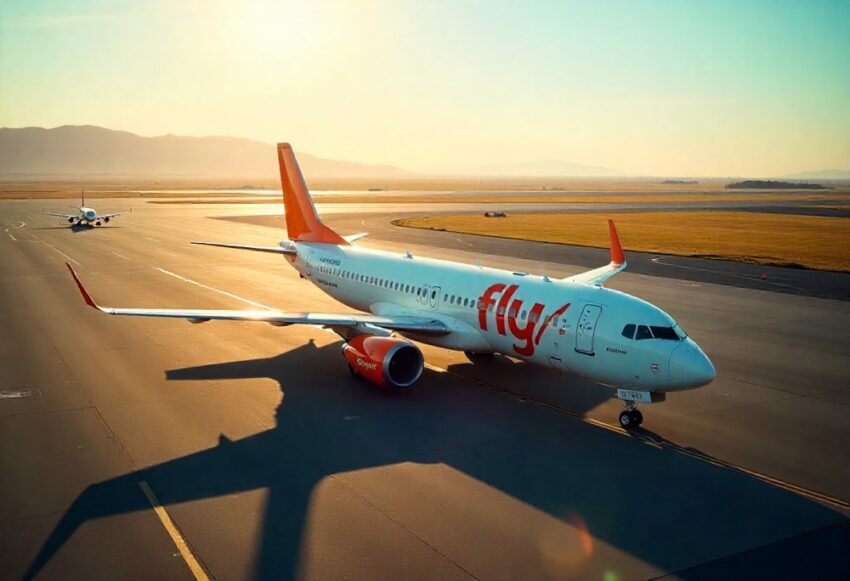Iceland’s Fly Play Ceases its Operations, Disrupting Key Europe-North America Routes and Highlighting New Challenges in Icelandic Aviation
Fly Play, a low-cost airline of Iceland halts operations, affecting many travelers and key international routes, exposing challenges in Icelandic aviation
On September 29, 2025, Iceland’s low-cost airline Fly Play closed down all its operations, canceling flights globally. The move comes after continued financial setbacks and the collapse of the airline’s restructuring plans, leaving thousands stranded. The shutdown, coming just four years after the 2021 launch of the airline, halted critical air travel between Reykjavik and Europe, and North America, prompting passengers to scramble for other forms of transport.
Keflavík International Airport announced that 12 flights were cancelled with effect from immediately, and they involved around 1,750 passengers. As a result of the sudden withdrawal of the airline from the market, passengers found themselves having to book with alternative operators, such as Icelandair and Iberia Express, which offered some with special “rescue fares” to try to reduce the effects. Icelandic authorities have made efforts to keep passengers informed and advise them of their EU passenger rights so that those which were affected know they are entitled to compensation and refund.
Passenger Rights: Navigating EU Regulations Amidst the Disruption
For passengers affected by Fly Play’s closure, EU regulations offer protections for flight cancellations and delays. Passengers are entitled to refunds, rebooking options, and, in some cases, compensation for the inconvenience caused. Travelers who paid for their tickets via credit card are encouraged to contact their card issuer for refunds, while those who booked through European travel agencies should seek assistance from their agents.
This disruption is particularly significant for tourists traveling to Iceland, especially as the island nation experiences peak seasons for northern lights tourism and winter activities. Travel agencies across multiple markets are working to rebook affected travelers, ensuring that holiday plans and business trips are not derailed by the unexpected collapse of the airline.
Fly Play’s Financial Struggles: The Challenges of Low-Cost Operations from Iceland
Despite the initial optimism surrounding Fly Play, the airline struggled to remain profitable in the competitive low-cost aviation sector. The company’s attempts to turn around its operations in 2025, including securing $20 million in funding, scaling back its transatlantic services, and shifting its air operator certificate from Iceland to Malta, were not enough to overcome its financial challenges.
The airline’s small home market, coupled with rising fuel costs, competition from established European carriers, and the difficulty of sustaining long-haul services from Iceland, contributed to its downfall. Fly Play tried to model itself after previous Icelandic carriers like WOW Air, but similar structural vulnerabilities ultimately led to its collapse, underscoring the risks faced by low-cost carriers in small markets.
The Impact on Iceland’s Tourism Industry: A Setback for Travelers Heading to Iceland
Fly Play’s closure has caused considerable disruption, especially for tourists planning to visit Iceland during the autumn and winter months. Iceland is a popular destination for northern lights enthusiasts and those seeking winter sports and adventure travel. The timing of the closure has created additional complications, as many travelers had already booked flights for these peak tourism seasons.
With Fly Play no longer operating, travelers are turning to Icelandair and other carriers to rebook flights. This shift may increase airfare costs on affected routes, making it more expensive for visitors to get to Iceland. However, it also provides an opportunity for Icelandair to consolidate its position as the dominant Icelandic carrier, although competition for these routes will likely intensify in the short term.
Challenges for Iceland’s Aviation Market: Competition and Sustainability
Fly Play’s closure highlights ongoing challenges for Icelandic airlines, particularly in the low-cost carrier sector. The small size of the Icelandic domestic market, combined with fierce competition on European routes and transatlantic services, makes it difficult for budget airlines to maintain sustainable operations. With Fly Play’s exit, Icelandair remains the largest and most established carrier in Iceland, but it faces increasing pressure from both European low-cost carriers and global airlines that are looking to capture market share in this growing tourism market.
The closure also underscores the challenges of sustaining profitability in the low-cost sector, where airlines must balance affordable fares with rising operational costs. This is especially true for carriers based in regions with limited domestic traffic, where airlines must rely heavily on international routes to drive revenue.
The Future of Icelandic Aviation: Icelandair’s Strengthening Position
With Fly Play gone, Icelandair is set to capture a larger share of the market for Iceland-bound travelers. While Icelandair’s premium services and higher fares may deter some budget-conscious travelers, the airline’s comprehensive network of long-haul and regional flights makes it a reliable choice for those seeking connections to North America and Europe.
Icelandair is likely to benefit from the loss of Fly Play by capturing passenger demand on routes between Iceland and major European cities. However, the increase in competition from low-cost carriers like EasyJet and Ryanair will likely lead to higher fares and more pricing pressure on short-haul flights.
The Rise of Alternative Carriers: Opportunities for New Entrants
While Icelandair may consolidate its position as Iceland’s leading carrier, the closure of Fly Play opens up opportunities for new carriers to enter the market. Other European and global low-cost carriers may look to fill the gap left by Fly Play’s collapse, particularly on routes between Iceland and European cities. The Icelandic aviation sector may see new entrants that offer affordable travel options, particularly in the low-cost segment.
Additionally, the focus on sustainable aviation may encourage eco-friendly airlines to enter the market, capitalizing on growing interest in sustainable travel options. Alternative fuel-powered aircraft and carbon-neutral travel are becoming more attractive to consumers, and airlines that incorporate these practices into their operations could find success in the Icelandic market.
The Role of EU Regulations in Protecting Passengers’ Rights
In light of Fly Play’s sudden closure, EU air passenger regulations play a vital role in protecting the rights of affected passengers. Travelers who booked flights with Fly Play are entitled to refunds, rebookings, and potentially compensation under EU law. This ensures that passengers are not left without recourse in the event of sudden cancellations, and helps maintain confidence in air travel across Europe.
As Icelandic authorities and EU regulators continue to oversee the claims process, passengers will be guided through the compensation mechanisms, ensuring that their financial losses are minimized and that they can secure alternative travel arrangements with minimal disruption.
The Long-Term Impact of Fly Play’s Collapse on Iceland’s Aviation Landscape
The closure of Fly Play highlights the ongoing difficulties of operating a low-cost airline in smaller aviation markets like Iceland. Although the country has proven to be an attractive destination for tourism, the aviation sector remains vulnerable to shifts in consumer behavior, economic fluctuations, and competition.
As Icelandair strengthens its position as the country’s dominant carrier, it is likely to face increased pressure from both low-cost and full-service airlines vying for market share. However, the Fly Play collapse also opens up potential opportunities for new entrants and sustainable aviation companies to capitalize on the demand for affordable and eco-friendly travel.
Fly Play’s Collapse and the Future of Iceland’s Aviation Market
The closure of the Fly Play play indicates the conclusion of a bold yet ultimately unsustainable effort to establish cheap international routes between Europe and Iceland. Although Icelandair will likely take the lion’s share of Fly Play’s market, Iceland’s airline industry will still have to contend with competition, price, and economic instability issues. The failure of Fly Play highlights the risks implicit in the low-cost carrier model in tiny, niche markets but also serves to create an opportunity for other carriers and environmentally friendly travel options to enter the market. In the end, the Icelandic air travel industry will have to evolve to meet changing market conditions and adopt sustainable growth to secure its long-term viability.
The post Iceland’s Fly Play Ceases its Operations, Disrupting Key Europe-North America Routes and Highlighting New Challenges in Icelandic Aviation appeared first on Travel and Tour World


Comments and Responses
Please login. Only community members can comment.